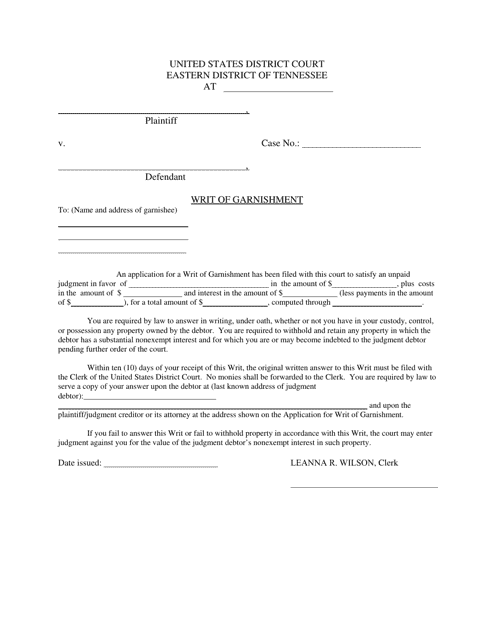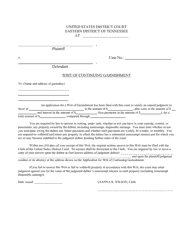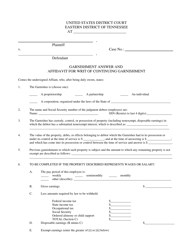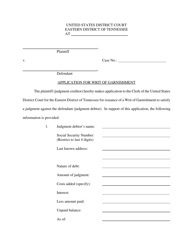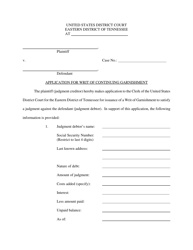Writ of Garnishment - Tennessee
Writ of Garnishment is a legal document that was released by the U.S. District Court for the Eastern District of Tennessee - a government authority operating within Tennessee.
FAQ
Q: What is a writ of garnishment?
A: A writ of garnishment is a legal order that allows a creditor to collect money from a debtor by garnishing their wages or seizing their assets.
Q: How does a writ of garnishment work in Tennessee?
A: In Tennessee, a creditor must first obtain a judgment against the debtor before seeking a writ of garnishment. The creditor can then serve the writ on the debtor's employer or bank to initiate the garnishment process.
Q: What types of debts can be collected through garnishment in Tennessee?
A: Common types of debts that can be collected through garnishment in Tennessee include unpaid child support, taxes, court-ordered fines, and defaulted student loans.
Q: How much of a debtor's wages can be garnished in Tennessee?
A: In Tennessee, the maximum amount that can be garnished from a debtor's wages is generally 25% of their disposable earnings, or the amount by which their weekly income exceeds 30 times the federal minimum wage.
Q: Can a debtor challenge a writ of garnishment in Tennessee?
A: Yes, a debtor has the right to challenge a writ of garnishment in Tennessee by requesting a hearing in court. They may be able to argue exemptions or hardship to reduce or stop the garnishment.
Q: How long does a writ of garnishment last in Tennessee?
A: A writ of garnishment in Tennessee typically lasts for 180 days. However, it can be renewed if the creditor needs additional time to collect the debt.
Q: Are there any protections for debtors in Tennessee regarding garnishment?
A: Yes, Tennessee law provides certain exemptions for debtors, such as protecting a portion of their wages and certain types of property from garnishment. However, these exemptions have limitations and may not apply in all cases.
Form Details:
- The latest edition currently provided by the U.S. District Court for the Eastern District of Tennessee;
- Ready to use and print;
- Easy to customize;
- Compatible with most PDF-viewing applications;
- Fill out the form in our online filing application.
Download a printable version of the form by clicking the link below or browse more documents and templates provided by the U.S. District Court for the Eastern District of Tennessee.
